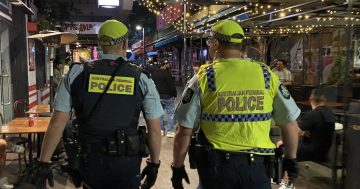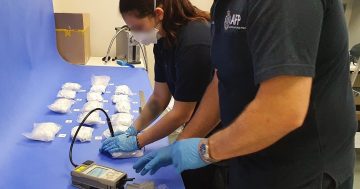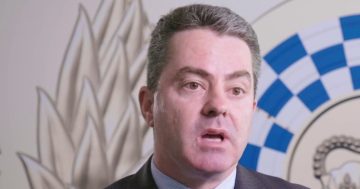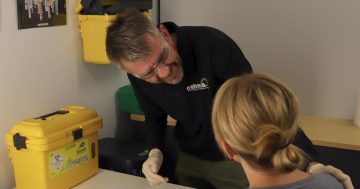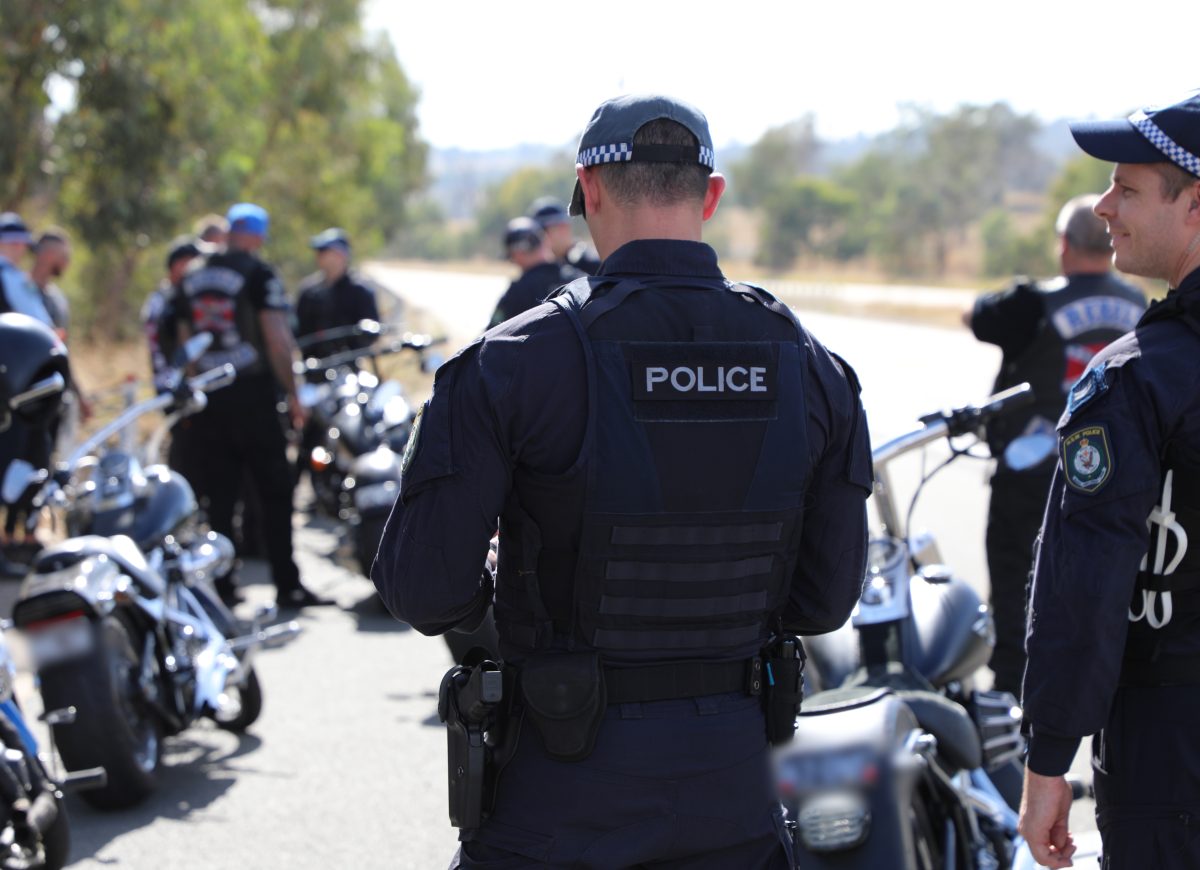
Police on both sides of the ACT border are closely monitoring OMCG activity in the Territory. Photo: NSW Police.
The presence of bikie gangs is growing in the ACT, but the ACT Chief Policing Officer (CPO) says they “can’t discount anything” about why that may be.
It comes a month after drug decriminalisation laws came into effect in the Territory. However, the CPO refused to solely pinpoint that as the reason why bikie numbers have increased.
CPO Neil Gaughan was questioned during annual reports hearings on Thursday (23 November), where he said police had observed a “fairly steady” number of outlaw motorcycle gang (OMCG) members in the Territory.
“What does concern us is that we now know we’ve got the presence of four OMCGs in the ACT,” he said.
“Those being the Comancheros, the Rebels, the Finks and Hell’s Angels.”
OMCGs have been assessed as the largest and most serious organised crime element impacting the country, with access to onshore and offshore networks, and they play a major role in the trafficking and storage of illicit drugs and firearms.
CPO Gaughan said the gangs tended to attract people who had a “high propensity” to violence and that Australia had generally seen an increase in offending involving OMCGs in the past few months.
He estimated about 30 patch members were in the ACT, but the number of associates was more fluid.
“We’re also aware that there have been some [OMCG] meetings in Canberra over the last couple of months that members of OMCG groups interstate have travelled to,” CPO Gaughan said.
“They’re coming to Canberra and they’re not doing any illegal activity, as far as we can tell … why they’re meeting here, as compared to another location, we’d have to ask them.
“The particular meetings [I’m mentioning involved] senior members of the Comancheros and senior members of the Hell’s Angels.”
When questioned if their presence was because the ACT doesn’t have anti-consorting laws and allows members to wear their patches or colours, CPO Gaughan said he “can’t discount that” as a reason.
Anti-consorting laws are designed to prevent members of outlawed groups or individuals from congregating.
Given drug decriminalisation laws have been in place for a month, CPO Gaughan was questioned over whether OMCG activity would continue to rise as a direct result of this legislation change.
Again, CPO Gaughan said he “can’t discount anything” when it comes to why bikies choose to come to Canberra and that there wasn’t any data relating to that yet.
However, he voiced his concerns about what the increase in members and clubs would mean for the Territory.
“Historically, what we do know [is] we see an increase in tension which elevates itself to utilisation of firearms and car bombings and the like,” CPO Gaughan said.
“We have not seen that in a significant way at this stage; we’ve seen what I would call intimidation taking place.
“[However] I will say, in relation to the change in drug laws, the sky hasn’t fallen in since the 28th of October … the law is very new, so at this stage, I think we’re in a position where we are alert.”
Since the new drug laws came into effect (until 20 November), 29 drug diversion referrals have been made and one fine issued.
Police will be keeping a “close eye” on the Split Milk festival in Canberra this Saturday (25 November), which has sold about 40,000 tickets, given such events are known to have a “fair amount” of drug use.
Comparisons have been made to drug decriminalisation laws in other countries, with America singled out as an example of how the policy can go wrong.
However, the CPO isn’t concerned we’ll head down the same path, given the US is the only country in the world that has a fentanyl problem.
When asked if drug decriminalisation could make Canberra attractive for bikies and other criminal groups to bring fentanyl here, CPO Gaughan said he was confident that wouldn’t happen.
“My personal view … is that I don’t think it helps the business model of the organised crime groups,” he said.
“If you look at the amount of money they’re making in Australia through the importation into the country of meth and cocaine, the amount of money they make here [in Australia] compared to other jurisdictions is six or seven times.
“The circumstances that exist pretty much everywhere but in North America don’t provide, I think, a reason for organised crime groups to move fentanyl across the globe.”
Fentanyl is not one of the decriminalised drugs under the legislation.












